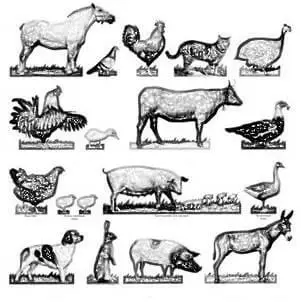To perform some act or adopt some opinion fully and thoroughly.
Go the whole hog
What's the meaning of the phrase 'Go the whole hog'?
What's the origin of the phrase 'Go the whole hog'?
‘Go the whole hog’ is an American expression. Whilst the word ‘hog’ has been in use in England since the 14th century, by the time that the phrase was coined, ‘hog’ had been largely superseded there by ‘pig’. No one in the UK ‘went the whole hog’ until the phrase migrated east from the USA in the 1830s. Oddly, although the phrase originated in the USA and other parts of the English-speaking world have adopted it, the Americans themselves gave up on the phrase and now prefer the variant ‘go whole hog’.
We can’t be 100% sure of the origin of the expression, but it is likely that it derives from a rather obscure satirical work by the English poet and hymn writer, William Cowper. Written at a time when Christian authors felt no misgivings about poking fun at other religions, the piece teases Muslims over the supposed ambiguity of the restrictions against eating pork as specified in the Qur’an. The gist of the poem is that, while sampling each part of a hog to test which part wasn’t permissible to eat, the whole hog is eaten.
The Love of the World Reproved: or, Hypocrisy Detected, William Cowper, 1782:
Thus says the prophet of the Turk;
Good musselman, abstain from pork!
There is a part in every swine
No friend or follower of mine
May taste, whate’er his inclination,
On pain of excommunication.
Much controversy straight arose,
These choose the back, the belly those;
By some ’tis confidently said
He meant not to forbid the head,
While others at that doctrine rail,
And piously prefer the tail.
Thus, conscience freed from every clog,
Mahometans eat up the hog.
Cowper may have had only a loose grasp of Islamic theology, but he did influence others who later took up the phrase ‘the whole hog’ to mean ‘the whole thing’.
‘Go the whole hog’ first started appearing in print in newspapers in the USA in 1827 and the earliest example that I can find is from the New York paper The Commercial Advertiser, December 28, 1827. The use of the phrase became widespread during the United States presidential election of 1828, in which the enthusiastic supporters of Andrew Jackson were called ‘whole hog’ Jacksonites. An early example of that usage is found in The Middlesex Gazette, January 1828:
Mr. Barbour, you know, was formerly the Speaker, but not being willing “to go the whole hog,” as the Jacksonites have it, they would not permit him again to be elevated to that high station.
The history of “Go the whole hog” in printed materials
Trend of go the whole hog in printed material over time
Related phrases and meanings
Browse more Phrases
About the Author

Phrases & Meanings
A-Z
A B C D E F G H I J K L M N O P Q R S T UV W XYZ
Categories
American Animals Australian Bible Body Colour Conflict Death Devil Dogs Emotions Euphemism Family Fashion Food French Horses ‘Jack’ Luck Money Military Music Names Nature Nautical Numbers Politics Religion Shakespeare Stupidity Entertainment Weather Women Work
How did we do?
Have you spotted something that needs updated on this page? We review all feedback we receive to ensure that we provide the most accurate and up to date information on phrases.
